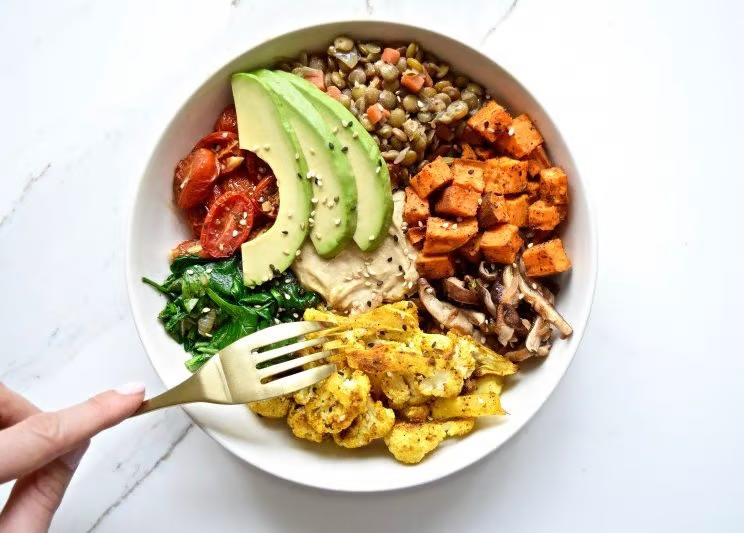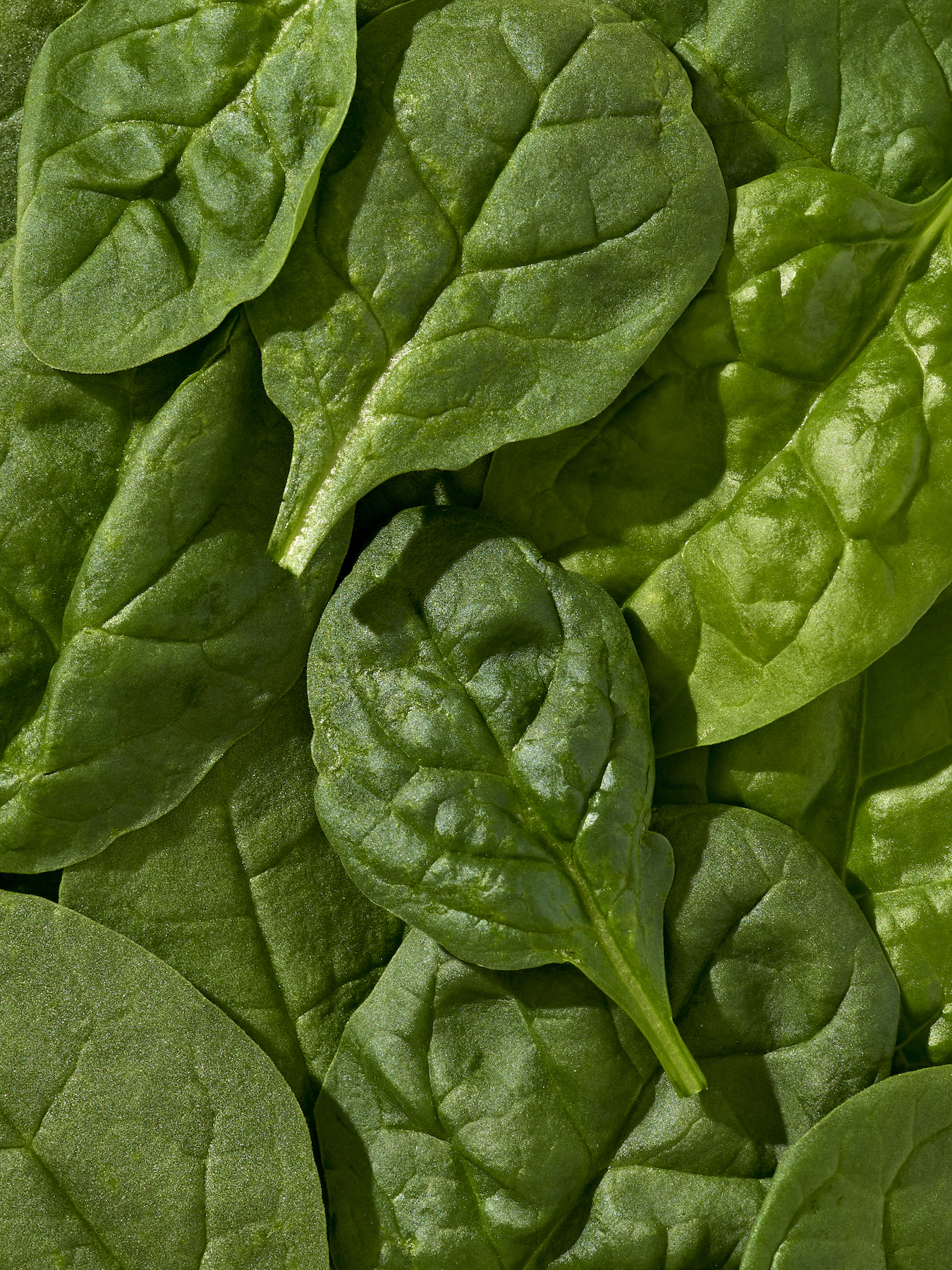Top Foods That Help You Sleep: Eat Your Way To Better Sleep
Sleep is vital to our overall health, profoundly influencing our physical and mental well-being. We've all felt how certain foods can impact our sleep, from the alertness from a cup of coffee or the drowsiness after a heavy dinner. What we eat affects our energy levels and plays a crucial role in our sleep quality and regulation. Certain foods, especially those high in specific amino acids, can aid in muscle relaxation and align our circadian rhythm, improving our sleep-wake cycle. Conversely, a diet high in foods with a high glycemic index can disrupt sleep patterns and negatively affect melatonin levels, which are essential for a healthy sleep cycle.
This guide will delve into the complex relationship between diet and sleep. We'll explore sleep-promoting foods, understand the role of a balanced diet in enhancing slow-wave sleep, and learn how to regulate blood sugar levels for better sleep. Additionally, we’ll highlight which foods can disrupt sleep quality and should be avoided for a restful night. From amino acids to the nervous system's role in sleep regulation, get ready to uncover everything you need to know about optimizing your diet for improved sleep.
As always, we recommend consulting your doctor or a registered dietitian if you have specific needs or want personalized guidance on incorporating the right foods for your health and sleep needs.
Do you find yourself constantly on the go but still want to indulge in healthy foods? The expert chefs at Hungryroot have crafted various delicious recipes and groceries delivered straight to your doorstep.
Whether juggling work, family, or other commitments, Hungryroot helps you enjoy mouthwatering foods without compromising your health goals. Get started today by taking our personalized quiz and start your health journey right from day one!
How Food Can Impact Sleep
Amino acids, the building blocks of proteins, significantly influence our sleep patterns and circadian rhythm. One key amino acid, tryptophan, is particularly influential. It's a precursor to serotonin, a neurotransmitter converted into melatonin, the hormone that regulates sleep. Foods rich in tryptophan, such as turkey, dairy, nuts, and seeds, can enhance melatonin production, thus aiding in regulating the sleep-wake cycle. This process is crucial for maintaining a healthy circadian rhythm, which is our internal clock that dictates our sleepiness and alertness throughout the day. The intake of these amino acids through a balanced diet can improve sleep quality and duration, as they help the body naturally wind down and prepare for rest.
On the other hand, certain types of foods can disrupt our sleep cycle, leading to restless nights and impaired sleep quality. Foods with a high glycemic index, such as sugary snacks and processed carbohydrates, can cause fluctuations in blood sugar levels, leading to energy spikes and crashes that interfere with sleep. Caffeinated beverages and alcohol are other common culprits; caffeine can block sleep-inducing chemicals in the brain and increase adrenaline production, while alcohol, although initially sedative, can impair the sleep cycle and prevent deeper stages of sleep. Spicy or fatty foods, consumed close to bedtime, can lead to discomfort and indigestion, making it harder to fall and stay asleep. To promote better sleep, it's advisable to avoid these types of foods in the evening and focus on a diet that supports and aligns with our natural sleep rhythms.
Best Foods For Deep Sleep
Cherries & Tart Cherry Juice
Cherries, particularly tart cherries, are renowned for their sleep-promoting properties, largely attributed to their high content of naturally occurring melatonin. Melatonin is a critical hormone in regulating the sleep-wake cycle, informing the body when it's time to rest. Tart cherries, and by extension, tart cherry juice, have been found to contain significant amounts of this hormone. Consuming these cherries or their juice can naturally increase melatonin levels in the body, thus aiding in establishing a more regular sleep pattern. This can be particularly beneficial for those struggling with sleep disorders or irregular sleep schedules.
Cherries are a good source of magnesium and potassium, minerals that are known to aid in muscle relaxation and nerve function, both of which are important for a restful night's sleep. The natural sugars in cherries can help slightly boost insulin levels, which in turn, helps tryptophan (the amino acid mentioned earlier) to get into the brain and convert to serotonin and then to melatonin. Studies have shown that regular consumption of tart cherry juice can increase sleep duration and improve sleep efficiency.
Dairy Products
Dairy products are often recommended as a part of a sleep-promoting diet, primarily due to their composition, which includes nutrients that facilitate better sleep. Dairy products are excellent sources of tryptophan, magnesium, and zinc, which are vital in producing serotonin and melatonin. This is particularly true for dairy products like milk, cheese, and yogurt. These foods not only contain tryptophan but are also rich in calcium. Calcium helps the brain use tryptophan to manufacture melatonin, effectively enhancing the sleep-inducing effects. Additionally, dairy products can have a comforting and soothing effect, especially when consumed warm, which can help the body relax and prepare for sleep.
Before bedtime, a glass of warm milk is a well-known home remedy for insomnia. The psychological effect of drinking warm milk is often associated with comfort and relaxation. Cottage cheese and Greek yogurt are also excellent choices, as they are high in casein protein and provide a steady supply of amino acids throughout the night, aiding sleep.
Chamomile Tea
Chamomile tea is widely regarded as a natural sleep aid. It is known for its calming and sedative properties that help ease the body into a restful state. This herbal tea is effective because of a flavonoid called apigenin. Apigenin binds to certain receptors in the brain that may decrease anxiety and initiate sleep, acting as a mild tranquilizer. This makes chamomile tea an excellent choice for those looking to unwind and relax before bedtime, especially for individuals who experience anxiety or restlessness that hinders their ability to fall asleep. Drinking a warm cup of tea can also be soothing, and help signal the body that it's time to wind down, enhancing its sleep-inducing effects.
Its caffeine-free nature makes it a safe and gentle choice for a nightly routine without the risk of the sleep disturbances often associated with caffeine consumption. Incorporating chamomile tea into the evening routine is a holistic approach to enhancing sleep quality, providing physical and psychological benefits.
Fatty Fish Like Salmon
Fatty fish, such as salmon, mackerel, trout, and sardines, are highly beneficial for improving sleep quality, primarily due to their rich content of omega-3 fatty acids and vitamin D. Omega-3s, particularly EPA and DHA, are known to contribute to the regulation of serotonin. Vitamin D, another nutrient abundantly found in fatty fish, has been shown to play a role in sleep regulation and can enhance sleep quality. Including these types of fatty fish in a regular diet supports physical health and can be a natural way to get deep sleep.
Complex Carbs And Whole Grains
Whole grains are an excellent choice for those seeking to improve their sleep quality. Whole grains often contain butyric acid, which helps the body produce GABA or gamma-aminobutyric acid, known for guiding our body’s sleep-wake cycles through regulating melatonin. According to the National Sleep Foundation, whole grains are also rich in tryptophan. Their slow-release carbohydrates support tryptophan’s ability to cross the blood-brain barrier to convert to serotonin.
Various whole grains can be particularly effective in promoting sleep. For example, oats are high in fiber and magnesium and contain melatonin and complex carbohydrates that can help more tryptophan get into the brain to aid in sleep. Brown rice, with its low glycemic index, ensures a gradual release of sugar into the bloodstream, aiding in consistent sleep patterns. Incorporating a variety of these whole grains into your diet can be a natural and effective way to improve sleep quality.
Lean Proteins Like Chicken, Turkey
Consuming lean proteins like chicken and turkey, which are rich in tryptophan, can help increase melatonin levels in the body, aiding in the onset and maintenance of sleep. Moreover, these proteins provide a sustained sense of fullness, which can prevent sleep disturbances caused by hunger pangs during the night.
Chicken and turkey, being low in fat, are easily digestible and do not cause the discomfort that can come from eating fatty, heavy foods before bedtime. This makes them an ideal choice for a light yet fulfilling evening meal. The key is to prepare these proteins in a healthy way, avoiding heavy sauces or frying, which can add unnecessary fats and calories that might disrupt sleep.
- Rastelli’s Seasoned Pulled Chicken
- Roli Roti Salt + Pepper Chicken
- Hungryroot Seasoned Grilled Chicken Breast
- Diestel Oven Roasted Turkey Breast
- Plainville Farms Boneless Turkey Breast
Magnesium Rich Foods Like Spinach, Bananas, Nuts, Seeds
Magnesium-rich foods such as spinach, bananas, nuts, and seeds promote good sleep, primarily due to magnesium's natural muscle-relaxing and nerve-calming properties. Magnesium aids in the function of GABA receptors, which are essential for quieting down nerve activity. This calming effect on the nervous system makes it easier for the body to transition into deep rest.
In addition to their magnesium content, these foods offer other sleep-promoting benefits. Spinach, for instance, is also high in tryptophan, further aiding the body's sleep processes. Bananas provide potassium, another mineral that supports muscle relaxation and overall sleep quality. Nuts and seeds, such as almonds, walnuts, and sunflower seeds, are rich in magnesium and provide healthy fats and protein, which can help sustain blood sugar levels through the night and prevent sleep disturbances. Regularly consuming these magnesium-rich foods provides a natural and effective way to improve sleep, offering a holistic approach to a better night's rest.
- True Leaf Farms Baby Spinach
- Superseedz Sea Salt Pumpkin Seeds
- Good Sam Foods
- Daily Crunch Nashville Hot Almonds
Getting Quality Sleep
Achieving deep, restful sleep is essential for maintaining overall health, especially for older adults whose sleep patterns may change with age. Incorporating foods and drinks rich in sleep-promoting nutrients into your daily routine can be a natural and effective way to enhance sleep quality. Ingredients like dark chocolate, sweet potatoes, and peanut butter are delicious and packed with compounds that can aid in relaxation and sleep. A healthy diet that addresses magnesium deficiency and includes amino acids like tryptophan can significantly impact your ability to fall asleep and stay asleep.
By getting creative in the kitchen and including these sleep-supportive foods in your meals, you can turn each bite into a step towards better sleep and, consequently, better health. Remember, what you eat can directly influence how well you rest, so make your choices count for a more rejuvenating sleep experience.
We know life can get hectic, but sticking to your healthy lifestyle should be easy. That's why Hungryroot brings custom-selected, healthy groceries that magically turn into delicious recipes delivered right to your door. Our seamless process frees up valuable time and helps you effortlessly embrace a healthy lifestyle. Let us be your trusted partner on your journey to health — because you deserve to feel good, inside and out.
Start your health journey by taking our personalized quiz to get your recipe and grocery recommendations.
Recommended Reading
- Top 10 Immune Boosting Foods To Supercharge Your Health
- Top Gut Healthy Foods: Prebiotics, Probiotics, And More
- Foods Good For Your Skin: Eat Your Way To Radiant Skin




